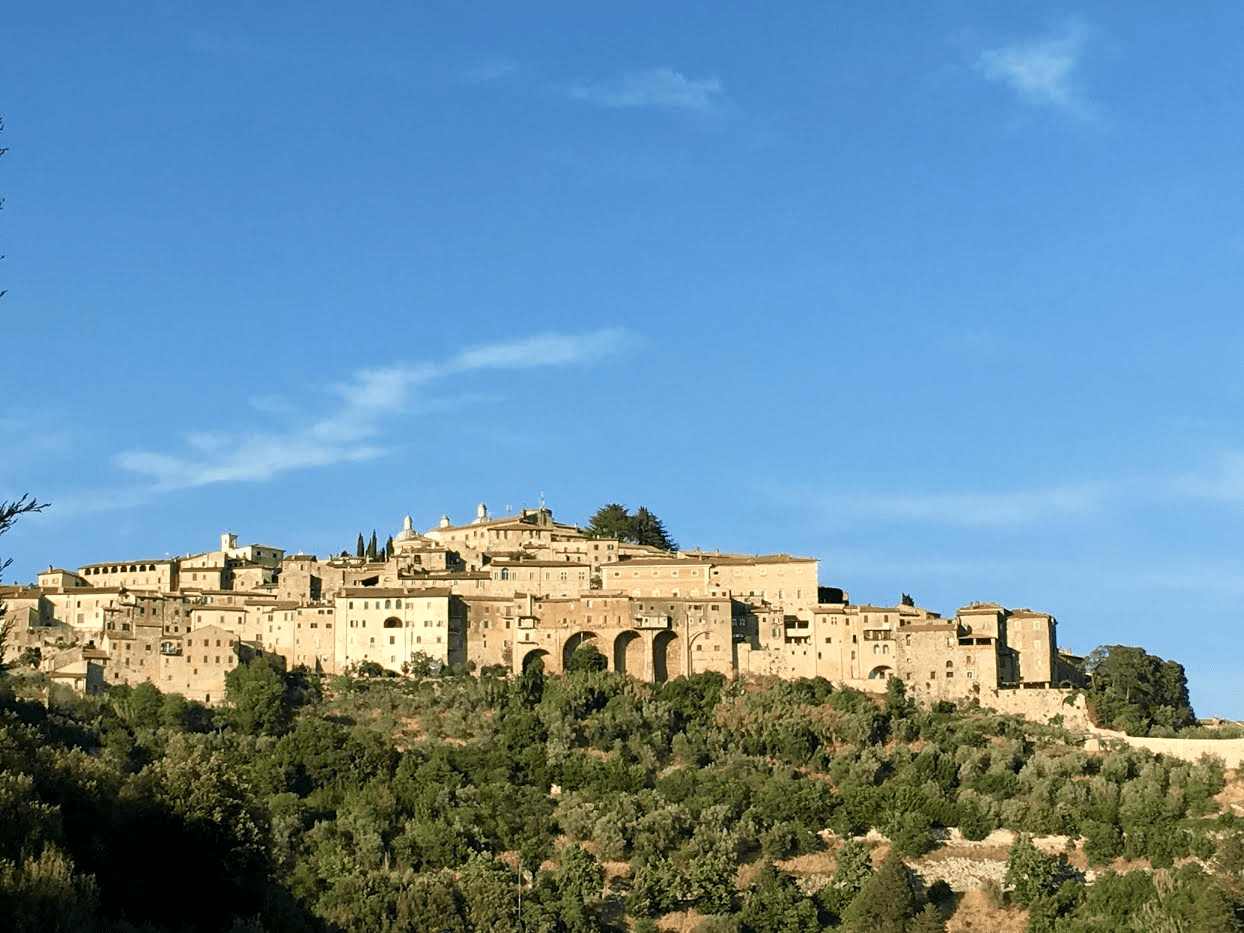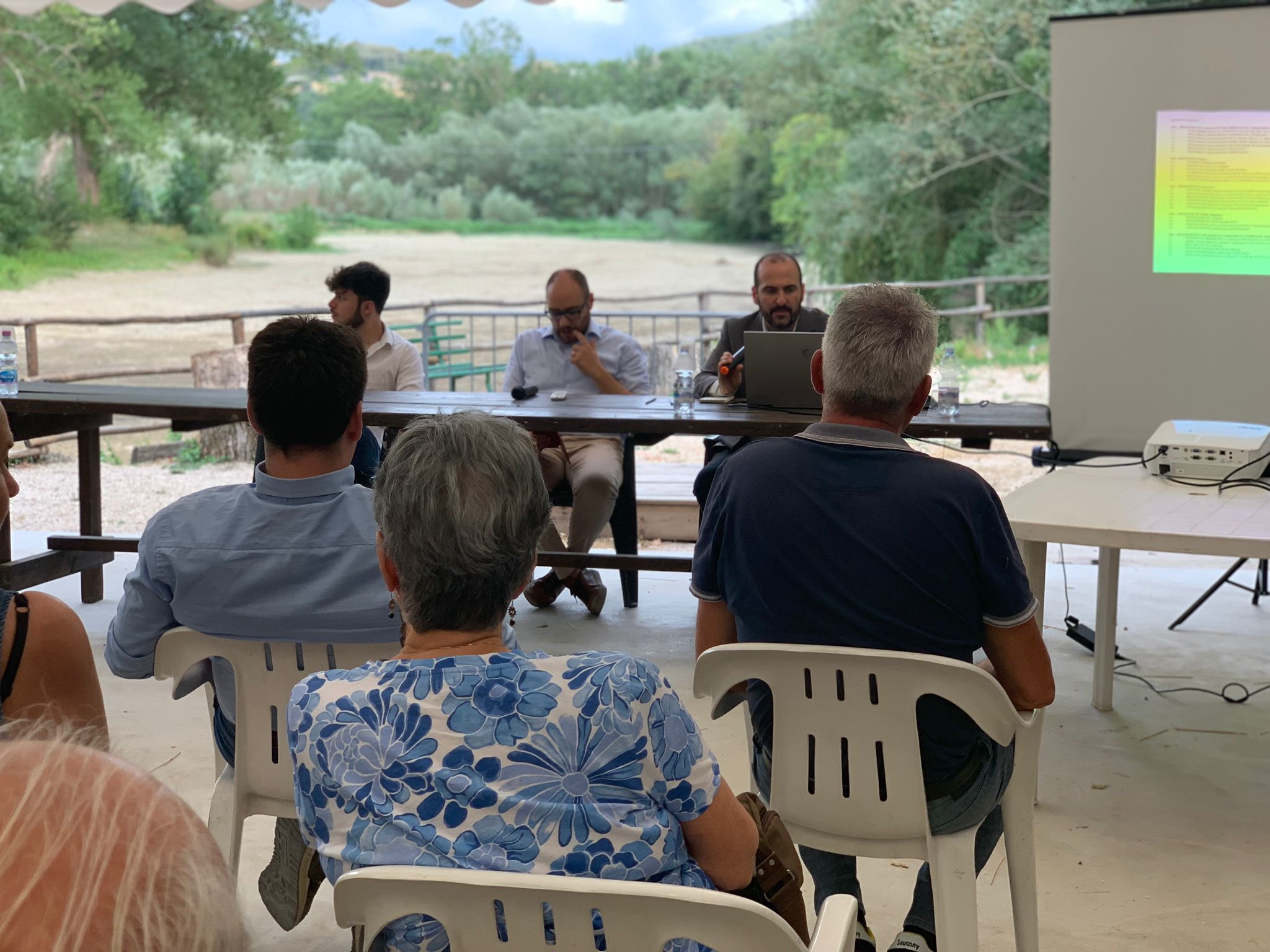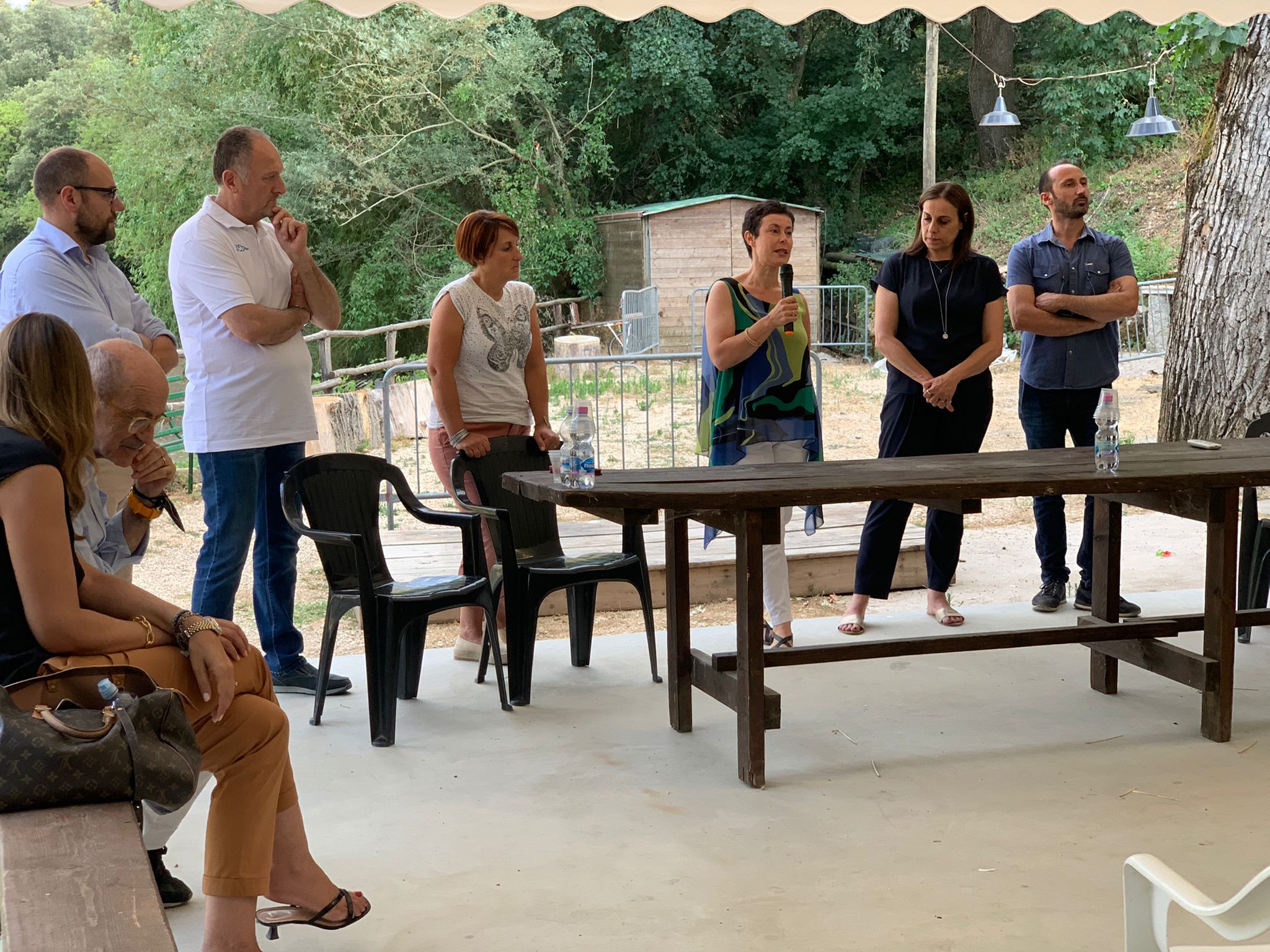The presentation of the project “Amerino©: Integrated actions for the territorial food strategy of the Amerino landscape” held yesterday, Tuesday, July 12, at the Rio Grande River Park in Amelia (TR), garnered great interest and wide participation from the community.
Approximately 100 people participated in the event, coordinated by the Municipality of Amelia and the other 10 administrations of Amerino involved in the project: Alviano, Attigliano, Avigliano Umbro, Baschi, Giove, Guardea, Lugnano in Teverina, Montecastrilli, Montecchio, and Penna in Teverina.
A great sense of emotion preceded the meeting in memory of Samuele Agabiti, who passed away prematurely just these days. The Mayor of Amelia, Laura Pernazza, opened the proceedings by presenting the political strategy underlying the project, which sees food as a pretext for relations between city and countryside. She emphasized the “full openness of the partnership to collaborate with all territorial entities” demonstrating the willingness and interest in being inclusive and representative of the entire Amerino territory.
Councillor Alberto Rini then highlighted how the project, funded through measure 16.7 of the Rural Development Programme by the Umbria Region, places “public administrations, and in particular municipalities, at the center of the relationship between city and countryside.” He emphasized that they are the first to engage in innovation. Their role substantially transforms the relationships that food can foster in the territory, placing the common good as a new project horizon” concluded Rini.
Councillor Tommaso Agabiti, municipal councillor of Amelia and delegate for agricultural policies, reiterated the processes of digital innovation and the new relationships and modes of interaction between supply and demand.”
The project proposal stems from university research conducted by the Department of Civil and Environmental Engineering, coordinated by Professor Fabio Bianconi, focusing on landscape enhancement centered around the theme of food. These studies played a driving role in the innovation processes guiding the project. The project, as outlined by Engineer Marco Filippucci, will implement actions across five axes of innovation: administrative infrastructure, digital infrastructure, communication infrastructure, narrative infrastructure, and relational infrastructure.
Within the processes activated for the innovation of the administrative structure of the 11 municipalities, there has been an expressed interest in revising the various regulations that intersect the theme of food. These regulations range from canteens to agritourisms, from food festivals to public purchases. Thanks to the interest shown by the Umbria section of the National Association of Italian Municipalities (ANCI), the proposal involves collaboration among administrations, which will begin working together to achieve a genuine simplification of procedures for purchasing local products.
The digital innovation will be achieved through the creation of a new digital platform, which will be developed by Green Consulting. Silvia Ferretti, representing the company, demonstrated operationally during the meeting the ways in which relationships will be established through the services offered by the platform. The platform aims to enhance the landscapes of Amerino, its food products, and the stories of labor that underlie production.
At the center of the project are indeed the agricultural companies, which, participating in the meeting, expressed their interest in working on the promotion of wine, extra virgin olive oil, and other typical products from Amerino, through the narration of the specificities of the territory and Amerino products as part of the broader Umbria brand. Presenting their own production reality were Alessandro Paciocconi for the Sandonna company and Flores Zanchi for the historic family winery, who showed the need to start from the narrative of the qualities of a good that marks the territory, its landscape, and its history, which today becomes an attractive element for territorial development. Juditta Marsili in Suatoni of the Suatoni Mill defined the role of mills as connection elements for oil producers, the attractiveness that this theme and the value of a unique product such as Rajo oil have for places, which thus uniquely narrate the qualities of the landscape. For typical products, Sandro Tamburini of the Agricultural Company F.lli Tamburini and the Association of Fava Cottora, Slow Food Presidium, represented by Daniela Passagrilli, spokesperson for a unique product, an ecotype selected from generation to generation by the local inhabitants. In this context of narrative innovation, the project promotes narrative experiments, proposals narrated by Rossella Viti for the Ippocampo Association, with the idea that artistic practice linked to the theme of food can contribute to engagement on the multiple underlying issues. Contests related to photography, design, and recipes from Amerino were also presented.
The innovation of the Amerino brand is at the center of the communication plan described by ADD Comunicazione, led by Daniela Tabarrini, tied to the creation of materials and channels that allow for the narration of the specificities of a unique territory. With the request to accompany the diverse content related to the ever-rich relationships between city and landscape with the hashtags #Amerino and #AmerinoTipico, the communication plan based on the mapping of relationships between food, producers, and landscape was explained.
The final axis of innovation concerns the innovation of relationships and services, with the idea of supporting stakeholders in renewing their offerings. In this context, the role of Città Slow International, a movement that addresses local communities and city governance, applying the concepts of eco-gastronomy to everyday living, is pivotal. Speaking for Città Slow International, Luca Filippetti emphasized the value offered by the association in promoting slow tourism and the support provided for policies aimed at enhancing landscape tied to food. In the more education-oriented approach, the project involves the Multinet operational group and Cesar, the Center for Agricultural and Rural Development, a recognized non-profit association founded in 1983, which conducts training, research, and consultancy activities in the fields of Rural Development, Agri-food, Community Policies, and Environment. Alessandra Antognelli highlighted the centrality of cooperation for the development of the rural territory, pointing out that the project marks the beginning of a broad and innovative journey.
Further comments were provided to support the proposal with their expertise by Raffaele Federici and Pierluigi Milone, professors from the University of Perugia, who deeply helped participants understand the scope of the project for the community with their words. Additionally, Federico Varazzi, Vice President of Slow Food Italy, expressed full interest in the project as an “innovative experience of food policy, framed within a territory suited to high-quality productions.”
The meeting concluded with summary readings offered by the numerous mayors of Amerino present, who expressed the political significance of the intervention and their full conviction in such a vision. The warning to be together cohesively is directed at all stakeholders, called upon to collaborate for the common good of Amerino.






